Top 40 Tracks of 2013: Part One
By No Ripcord Staff
 40. Lorde
40. Lorde
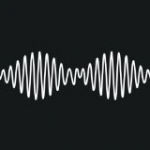 39. Arctic Monkeys
39. Arctic Monkeys
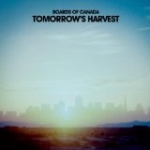 38. Boards of Canada
38. Boards of Canada
 37. Deafheaven
37. Deafheaven
 36. Arcade Fire
36. Arcade Fire
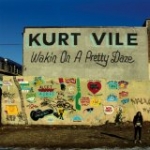 35. Kurt Vile
35. Kurt Vile
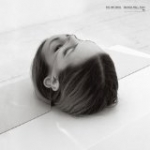 34. The National
34. The National
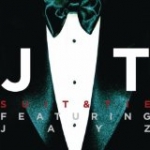 33. Justin Timberlake
33. Justin Timberlake
 32. Banks
32. Banks
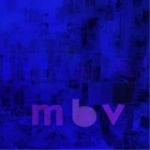 31. My Bloody Valentine
31. My Bloody Valentine
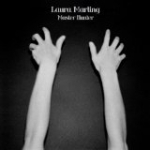 30. Laura Marling
30. Laura Marling
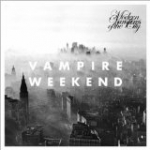 29. Vampire Weekend
29. Vampire Weekend
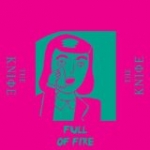 28. The Knife
28. The Knife
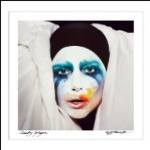 27. Lady Gaga
27. Lady Gaga
.jpg) 26. David Bowie
26. David Bowie
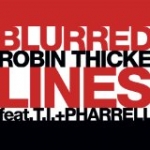 25. Robin Thicke
25. Robin Thicke
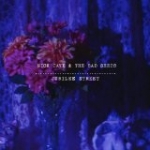 24. Nick Cave and the Bad Seeds
24. Nick Cave and the Bad Seeds
 23. Oneohtrix Point Never
23. Oneohtrix Point Never
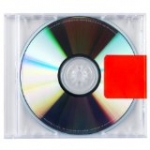 22. Kanye West
22. Kanye West
 21. Sigur Rós
21. Sigur Rós
These articles tend to start with a statement about the overarching trends contained within the list below. However, it doesn’t look there was any such trend in 2013. Our favourite forty tracks of the year, taken from a poll of No Ripcord writers, are as rich and diverse as our site itself. We’ve teenagers and sexagenarians, songs that hark to the past and songs that look to the future, three minute blasts of pop and ten minute winding epics, tracks from the biggest names in music and tracks from artists making a name for themselves by self-releasing their material. All of this points to a good year and, upon reading this list, we’re sure you’ll agree.
We’d love to know what you think of numbers 40-21, and be sure to check back soon for the all-important Top 20.
 40. Lorde
40. Lorde(from “Pure Heroine” on Universal)
Such was the dazzling frequency with which she dropped right-on gnomic insights it was very easy to forget that Lorde, arguably the year’s biggest breakout star, was actually a girl of sixteen-going-on-seventeen. Perhaps that’s why Tennis Court as a single ended up being rather overlooked in favour of the all-conquering Royals, as (at first glance) it didn’t stretch to offering holistic critiques of pop culture as it stands in 2013, instead merely focusing on the hoary old chestnut of high school love. But then, most teenagers’ attempts at romantic poetry are nowhere near as slickly observed, and within the daydreamy wonderings about airplanes and driftings into authentic incoherence was a very knowing skewering of all the drama of this tried-and-true narrative, recognising that it is, in the grand scheme of things, absolutely insignificant. Even when Lorde was acting her age, there was still no hiding her fierce, wise-beyond-her-years intellect. Mark Davison
 39. Arctic Monkeys
39. Arctic Monkeys(from “AM” on Domino)
Arctic Monkeys have come an awful long way since they burst out of Sheffield, clad in a swathe of Adidas Originals, surrounded by a world of hype it would surely be impossible to live up to. Almost eight years later, they can now really stake a claim to be mentioned in the same bracket as the very best British bands, and Arabella is a milestone that denotes just how far the blueprint has ripened. Turner and co. manage to cross-stitch brooding bravado with composed R&B to create a self-assured swoon of cool. As expected, Turner’s lyricism is from another stratosphere, demonstrating just how well he knows his way around a pen and paper, and there’s a chorus that’s so Sabbath, you’re surprised that Ozzy doesn’t pipe up with an, “Oh Lord, yeah!” An unflappable outpouring from a band at the very top of their game. Carl Purvis
 38. Boards of Canada
38. Boards of Canada(from “Tomorrow’s Harvest” on Warp)
It has recently come to my attention that the “Jacquard” in Jacquard Causeway may actually refer to the late Albert Jacquard, a geneticist well known for defending the concept of “degrowth”. In short, the aim of Jacquard and fellow “degrowthists” was to maximize happiness and wellbeing through non-consumptive means, mostly involving the contraction of economies and further development of communal oneness. Social implications aside, Jacquard Causeway seems to be the musical embodiment of degrowthist philosophy. Rather than saturate the piece with contrapuntal synaesthesia, Boards of Canada focus on bonding sparse elements into a loom with only the barest indication of potentiality. On Jacquard Causeway, melody, much like our material possessions, is a transient expressive mode, one that stammers and vaguely clasps for meaning amidst the warped rhythm of humanity. Andrew Ciraulo
 37. Deafheaven
37. Deafheaven(from “Sunbather” on Deathwish)
Consider Dream House to be the quickest nine minutes you’re likely to experience all year. Black metal artists (or whatever you want to call Deafheaven) typically stretch their tracks out for purposes of atmosphere, but Deafheaven broke the mold entirely this year by unleashing an opening track that’s pure momentum, fury, and triumph for each second of its time span. There’s a lot going on here, but every morphing riff, gymnastic blast beat, and scathing screech work together so perfectly that it never becomes tedious or overthought, with everything resolving so beautifully and sublimely in its final moments that it makes you immediately want to start it all over again. Like most metal music, Dream House is certainly brutal and a bit beguiling at times, but few pieces of music in general this year captured the essence of “ascension” as exquisitely as this. Peter Quinton
 36. Arcade Fire
36. Arcade Fire(from “Reflektor” on Merge / Sonovox)
It has been suggested that Arcade Fire are among the last torchbearers for the dying art of rock n’ roll. That argument is likely to run and run (for me, it’s not dying, just mutating at an exponentially increasing rate at the margins while the centre remains static), but there’s no denying that they’re a great band in a kind of old fashioned sense. For one thing, they still make ‘albums’ that are conceived as entire pieces of art, as opposed to collections of songs. This particular album, Reflektor, was a bit of a flawed experiment but it did contain some great songs, notably the title track and, my pick of the bunch, Afterlife. The latter is simply a wonderful sing-along, stomp-along, rousing, uplifting anthem of the kind they pretty much made their own on their debut, Funeral. What’s not to like? David Wood
 35. Kurt Vile
35. Kurt Vile(from “Wakin on a Pretty Daze” on Matador)
It doesn't seem like it should work – ten minutes of Kurt Vile’s drawl over some of the most laid back instrumentals heard all year – but what makes Wakin On a Pretty Day, the opening track off Vile’s wonderful album, Wakin on a Pretty Daze, potentially his best song is just how perfectly it nails every aspect of Vile’s aesthetic and makes an entire world out of it. As a lyricist, Vile’s wit and charm is in full form (“Phone ringing off the shelf / I guess it wanted to kill itself”), but everything here, from the vocals to the gorgeous guitar melodies, are delivered at such an entrancing, lucid pace that you simply melt into Vile’s “lackadaisically stoned” universe, making ten minutes feel not nearly long enough. Peter Quinton
 34. The National
34. The National(from “Trouble Will Find Me” on 4AD)
While they may not be known for it, The National can rock out just as strongly as any other rock band. Although Sea of Love may not have the drunken chaos of Abel or the explosive build-up of Apartment Story, it is tight and tenacious. The drums, bass and dual guitars chug along like a speeding train, using Matt Berninger's voice as an anchor. The instrumentation pulls away just for a minute as Berninger warns himself, "If I stay here, trouble will find me." The band swells back in and we're off to the races again. As with many National songs, Sea of Love knows when to build, when to pull back and when to rip loose. A masterful performance from a mature band whose members know their craft inside and out. Joe Marvilli
 33. Justin Timberlake
33. Justin Timberlake(from “The 20/20 Experience” on RCA)
In the days following the release of this lead single from the well-dressed Mr. Timberlake, sales of skinny ties jumped by more than six times worldwide. Just trust me, it’s true. After a six year hiatus, tailored formalwear became the stated identity for a multi-talented virtuoso backed by A-list wingmen and flanked by A-grade women. Really, who wouldn’t want to stride into the spotlight with such an elite posse? You can too, Timberlake assures, as long as you look the part. It’s a compelling invitation, but if you’re still a skeptic, he offers his silky falsetto and smooth horn section as a refined backdrop to your well-mannered charm and sophistication. In model-esque fashion, Suit & Tie rolls up its sleeves and heads commandingly to the dance floor. The supporting album sold nearly a million copies in its first week and has since been certified double platinum. Ben Jones
 32. Banks
32. Banks(from “London EP” on Virgin EMI)
It may be a bold suggestion to make so early in her career, but if Jillian Banks continues to release music to the same standard as the tracks she released in 2013, there's a good chance that she could become one of the most important pop artists of this decade. Taken from her debut EP, London, This Is What It Feels Like is arguably her best song to date; a dark, minimalistic, mid-tempo track featuring little more than a slow trap beat and warped electronic sounds as accompaniment. At the core of the song is a simple, catchy melody; a melody brought to life by a voice that effortlessly exudes emotion. Craig Stevens
 31. My Bloody Valentine
31. My Bloody Valentine(from “m b v” on m b v)
Much of m b v is as subliminal as old favorites from Loveless, but Wonder 2 stands out because it exemplifies what happens when the urgent vocals of Isn’t Anything and songs like You Made Me Realise clash with the atmospherics that gave My Bloody Valentine their fame. Kevin Shields is almost comprehensible, but his voice nonetheless borders on the robotic. Concurrently, guitar crescendos and jet-like sound effects create the feeling of movement, so the song seems like a forced, disconnected goodbye. Instrumental interludes display the band’s trademark guitar wizardry, but its Colm Ó Cíosóig’s unrelenting machine-gun drumming that keeps the song moving. The fight between the dreamy title, emotional lyrical themes, and battleground instrumentals is embodied in the song’s mixing, in which tones seem to drop in and out at random, creating an uncomfortable but demanding six minutes that stands out as one of the band’s best moments. Forrest Cardamenis
 30. Laura Marling
30. Laura Marling(from “Once I Was An Eagle” on Virgin)
2013 saw Laura Marling firmly establish herself as an elite member of the British singer-songwriter club with Once I Was An Eagle. Master Hunter is the first single from this excellent record, and a real exhibition of her talent. The track has a sardonic, predatory intricacy that is indispensable to the album on the whole, bridging an in-record transition that enables the record to meander in a meticulously arranged segue. Since her arrival in 2008, the volume of Marling’s output has been nothing short of prolific, but her work is evolving and strengthening with each release. Master Hunter, with its profound, modal composition, is the jewel of Marling’s most valuable crown. Carl Purvis
 29. Vampire Weekend
29. Vampire Weekend(from “Modern Vampires of the City” on XL)
Hannah Hunt is the sound of Ezra Koenig coming into his own as a songwriter. He's always had a knack for stringing together words in a pleasing way. Sometimes it means something, sometimes it doesn't, but it always sounds nice. Hannah Hunt is when it comes together in the best way. He knits together a perfect series of vignettes about a happily doomed relationship, each making perfect sense individually and fitting together when the song is viewed as a whole. Each word sounds carefully chosen and placed, put exactly when and where it belongs. Koenig’s voice sounds better than ever, helping guide the song from a whisper into the best climax of Vampire Weekend’s career; a howling, spine-chilling verse that captures the end of a once-happy relationship in a simple yet incredibly descriptive way. Andrew Baer
 28. The Knife
28. The Knife(from “Shaking the Habitual” on Rabid)
In an age where being weird or outré is seen as a kind of hip quirkiness, it’s convenient that The Knife are still around to show everyone just how cool it is, literally, to be strange. Aided by their usual Nordic iciness, Full of Fire is a nine minute noise-fest propelled like an engine by a frenetic bassline that intensifies until halfway through the song where it sounds like a hundred iron fists are pounding out a sinister and mighty rhythm on a synthesizer. Shrieks and squawks abound, eerie electronic whistles pulse frantically and grotesquely distorted vocals sing of liberals giving people nerve itches. Whatever that means, no-one in 2013 has managed to channel such unbridled, pupil-dilating ecstasy into song form the way Karin Andersson and Olof Dreijer have, and for that they deserve some recognition. Shaking the habitual, indeed. Luiza Lodder
 27. Lady Gaga
27. Lady Gaga(from “ARTPOP” on Streamline / Interscope)
Amid all the press-courting and games of dress-up (it’s been four years, how has she not repeated even a single outfit?) it was perhaps Gaga’s assertion that she was the point at which high and low culture met that seemed like a step too far. To make things even more pretentious, she was making these claims in the lead single from her latest album, a track which didn’t even have the good grace to be anywhere near as immediate as her early stuff. It’s a good thing though that Applause revealed itself to be something of a grower, its initially cheap-sounding EDM beating the listener into a gradual sense of submission, while Gaga dropped cultural references with an amount of glee not seen since early Manics records and acknowledged that being a pop-star is a deeply narcissistic business. For once it’s hard to imagine Madonna doing that. Mark Davison
.jpg) 26. David Bowie
26. David Bowie(from “The Next Day” on ISO / Columbia)
David Bowie’s return after his post-retirement hiatus was greeted with a fairly predictable media frenzy. Of course, he has ‘returned’ before, but never to such critical anticipation. It was as if the world was willing our greatest ever rock star to still be great. Well, in large part he did not disappoint; the album The Next Day was a critical and commercial smash. The Stars (Are Out Tonight) is the second single and, for me, the best song on the album. It came complete with a typically bizarro video starring Bowie and Tilda Swinton as a married suburban couple whose life is interrupted by the arrival of the titular ‘stars’ who turn out to be an alien race (or at least that’s one interpretation). But the song itself is prime Bowie – catchy, spooky and mysterious. David Wood
 25. Robin Thicke
25. Robin Thicke(from “Blurred Lines” on Star Trak / Interscope)
I’m a firm believer that the concept of “guilty pleasures” is complete hogwash, but it seems that Blurred Lines may well be the theory-busting counter-example. Thicke, T.I. and Pharrell strut around the track, all sunglasses and knowing nods, telling us that they, and only they, truly know what women want. In addition, there’s a strong suspicion that the trio are claiming that the blurred lines in question relate to consent. Away from the lyrics though, there’s a marriage between percussion and bass that’s so funky that it’s near impossible to avoid being drawn in. Add in those “hey hey heys” and irresistible, efficient guitar licks and you’re hooked – controversy alone doesn’t make you the best-selling song of the year. Liking this record may reduce me to a conflicted, middle-class guilt-ridden mess, but only a handful of tracks have a similarly simple yet nagging ability to really get under your skin. Joe Rivers
 24. Nick Cave and the Bad Seeds
24. Nick Cave and the Bad Seeds(from “Push the Sky Away” on Bad Seed Ltd.)
Jubliee Street is the second single from Push the Sky Away, the fifteenth album from Nick Cave and the Bad Seeds. In it, Cave tells the story of “a girl named Bee,” who “had a history [but] no past,” and alludes to her life ending at the hands of the song’s narrator. Though dark, the song itself is stunning in its minimalism and Warren Ellis’s lush violin warrants the same attention as Cave’s captivating delivery, the persona of his character a conflict of guilt and relief, remorse and redemption. Cave sounds sympathetic as his character finishes his testimony, and the Bad Seeds demonstrate as much musically through the song’s delicate melody, which grows in volume as the emotional weight is seemingly lifted. It’s as if through confession the narrator’s soul is saved, though Bee is simply erased. Sean Caldwell
 23. Oneohtrix Point Never
23. Oneohtrix Point Never(from “R Plus Seven” on Warp)
I still don’t think R Plus Seven is an album that can be properly experienced out of sequence. In other words, I don’t believe that it has any “singles” or even a “best track” per se. However, if there was one song in particular that most accurately represents the modus operandi of R Plus Seven, it’s without a doubt Chrome Country. Like the greater whole of R Plus Seven, Chrome Country is an experiment in the gradual evolution of a musical experience; one where each sound transforms into another, allowing seemingly abstract tonalities to surmount temporal limitations and bend around our own aural sensibilities while still remaining utterly ambiguous all the while. Andrew Ciraulo
 22. Kanye West
22. Kanye West(from “Yeezus” on Roc-A-Fella / Def Jam)
Yeezus begs for controversy. The album pokes and prods at sensitive spots, daring a reaction. It's both sonically and lyrically harsh and Blood on the Leaves is the penultimate moment; a bizarre, twisted love story (one of several on the album). It pairs the apocalyptic horns of TNGHT's R U Ready with a haunting, pitched-up sample of Nina Simone’s cover of Strange Fruit. It's a disturbing, grating combination: a song about missed chances in love rapped/sung/auto-tuned over one about lynchings, a pairing only Kanye West would think to try, and a pairing only Kanye West could pull off so well. Its quality should come as no surprise; West has made a career out of creative, unexpected combinations, and this fits in firmly with the best of them. Andrew Baer
 21. Sigur Rós
21. Sigur Rós(from “Kveikur” on XL)
This song blew me away. It’s nothing like last year’s Valtari material; it’s dark and brooding. This is the sound of Sigur Rós, one member less now, at its workbench, moulding something powerful and new. The industrial Brennisteinn is soon obvious as one of the band’s very best songs. Following on from Valtari’s delicate and stunning soundscapes, it marks the band voicing its continued relevance. It’s a sculpted and tough epic, gutsier than what has gone before, but somehow still familiar. It crashes in at 0.25, like an explosion, it wrestles with the beauty the band possesses whilst showing more muscle than ever before. It builds in a way that only this band knows how, and at the six-minute mark it sounds like Jónsi has tossed his guitar away for something serene and breathtaking, as the song sails towards a magnificent, peaceful ending. A classic! Dominic Stevenson
If it's part two you're looking for, you're in luck! Step this way.
16 December, 2013 - 09:14 — No Ripcord Staff
